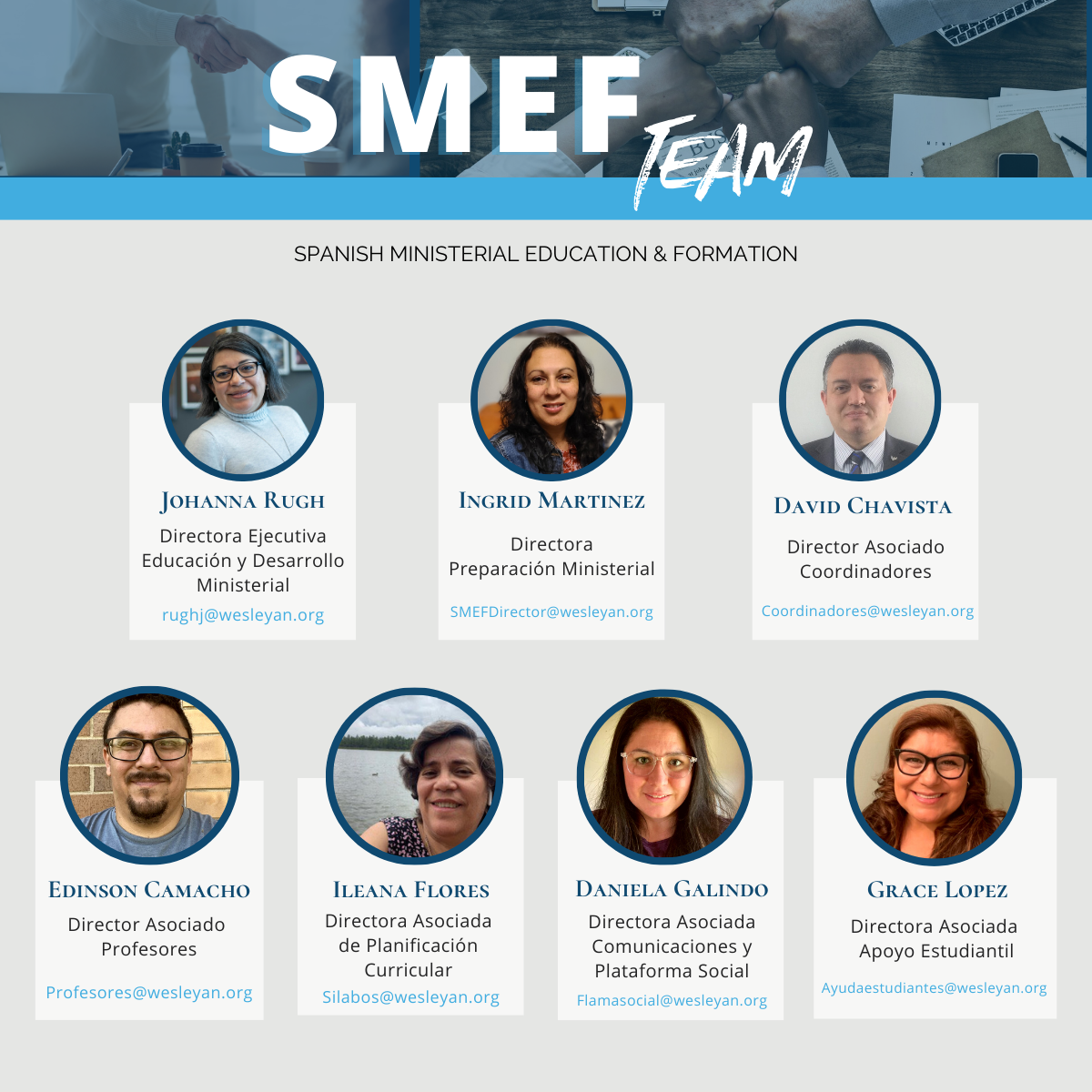The Spanish Ministerial Education and Formation (SMEF) team was created to help equip Hispanic ministerial students for ordination, but for more than that as well. Rev. Ingrid Martinez, SMEF’s director, emphasizes that she wants each student to be fully prepared both for classes and for ministry in the unique context of their community.
She adds that the Hispanic community in the United States includes immigrants from many different countries. As a result, part of SMEF’s goal is to “form leaders who can face the multicultural challenge,” who understand the realities Hispanic people face day-to-day. Rev. Martinez says, “Currently we don’t have one leader for the Hispanic church who can face the challenge, furthermore, every pastor does whatever they can.”
The Spanish academic program that takes students through the educational requirements for ordination is FLAMA, and it existed before the SMEF team came into the picture. Rev. Martinez notes that, in terms of the ordination process and FLAMA, “every class is the same for everyone,” English or Spanish.
The particular role of the SMEF team is to add leadership and direction to the Spanish ministerial education process. Rev. Martinez relates that until about four years ago, everyone could pretty much approach FLAMA however they wanted. Now, “SMEF is the team who works for FLAMA,” bringing systematization to the process. Rev. Johanna Rugh, executive director of Education and Clergy Development (ECD) and SMEF’s previous director, adds that “SMEF began as an opportunity to have a robust team to provide guidance and support to our Hispanic ministerial students throughout the U.S.”
SMEF didn’t start out in its current form, though. Rev. Martinez recalls a time when SMEF was just “two people [volunteers], helping Johanna.”
Their current system emerged when Rev. Rugh became the executive director of ECD and asked Rev. Martinez to take over leadership of SMEF. Though still working on a volunteer basis, Rev. Martinez has been able to build a new team, with each member contributing in a specialized way.
 Now, the SMEF team consists of six people, all fulfilling different roles. Rev. Martinez serves as the director; Rev. David Chavista works with coordinators; Rev. Edinson Camacho works with professors; Rev. Ileana Flores manages syllabi; Rev. Grace Lopez takes care of student support; and Daniela Galindo handles communications and social media. This delegation of tasks lets them all be more effective as they seek to help and equip ministers.
Now, the SMEF team consists of six people, all fulfilling different roles. Rev. Martinez serves as the director; Rev. David Chavista works with coordinators; Rev. Edinson Camacho works with professors; Rev. Ileana Flores manages syllabi; Rev. Grace Lopez takes care of student support; and Daniela Galindo handles communications and social media. This delegation of tasks lets them all be more effective as they seek to help and equip ministers.
When it comes to challenges that SMEF faces, both Rev. Martinez and Rev. Rugh mention getting everyone — districts, pastors and students — on the same page about processes and ordination requirements. “I feel that we have a gap that we want to fill between headquarters and the district boards of ministerial development (DBMD), and then the DBMDs and pastors,” Rev. Martinez says. Communicating the value of ministerial preparation and explaining the specifics of the path to ordination can be complicated.
Rev. Rugh adds that financial struggles can be another difficulty and most of the professors who teach and the pastors who learn through FLAMA are bi-vocational. Many who migrate to the U.S. generally came in search of work, not to pursue ministry. Lack of preliminary education can be another obstacle, so SMEF has worked to create resources that assist with academic preparation.
Despite these challenges, the SMEF team remains passionate about their work. Rev. Rugh says she loves to see the team’s desire to serve God manifest, and “they are wonderful people that love the Lord.” She is enthusiastic about the structure that SMEF brings to the ministerial education process.
For Rev. Martinez, one of the best parts of working for SMEF is “seeing the students grow.” In the future, she hopes to see more students get engaged and paths to master’s degrees in seminary open. But for now, she says, she gets excited whenever someone reacts to God’s call. “When you see one person feels the call, God’s call, when you hear the student say, ‘I’m gonna be a pastor, and I’m doing this,’ … when you see the classes are working for the formation of the students, you say, ‘Yes! We got it!’”
Jerah Winn is a communication assistant in the Communication and Administration Division of The Wesleyan Church and studies writing and honors humanities at Indiana Wesleyan University, Marion, Indiana.

